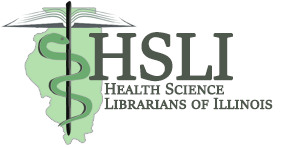(via Hannah Rempel, Oregon State University)
It’s not email deja vu – STS puts on two great research-based events each year! In case you weren’t able to attend (or even if you did!), here are the links and abstracts from the 2017 STS Research Forum:
Featured Paper:
The Cost of Doing Biology: A Citation Analysis of Freely Available Scholarly Articles
The changing nature of scholarly publishing has fundamentally altered the relationship between patron, library, and information. One key change in that relationship is the perception of what scholarly resources, namely journal articles, are available without cost from sources outside of the library. This project asks, how much of what biologists cite is available without cost online? Faculty publications from the Department of Biology were collected for the calendar years 2011 to 2016 and their citations extracted from Scopus. Free full-text availability of cited articles was checked using PubMed and PubMed Central, Google and Google Scholar, ResearchGate and Academia.edu, and Sci-Hub. A coding scheme assigned a color representing availability in descending order as: being in PubMed Central, in an Open Access Journal, on ResearchGate or Academia.edu, on an “other” web resource, or in Sci-Hub. Sources were also coded as being available only through the library, as a book in the library, or as neither free online or available in the library.
Initial results based on 9,961 citations from 17 faculty (30% of the department) show that 82% of cited articles are available freely without the use of Sci-Hub. The percentage grows to 98% when Sci-Hub is included. These numbers point to an information ecosystem that runs parallel to traditional library collections. They also hint at a possible paradigmatic shift in how collections are built, managed, and access mediated. Future research based on the data will begin to elucidate user behavior in relation to non-library scholarly resource usage.
Jason Burton, Indiana University Bloomington
Short Papers:
Testing Journal Matching Systems: A Head-to-Head Comparison
Authors looking for a journal to publish a paper are often confronted with a plethora of journals in their field. Some are published by reputable publishers, but since 2008 many less-than reputable open access journals promising fast peer review have appeared. New researchers are usually familiar with the literature in their field, but may want to establish a scholarly record by publishing in more specialized journals before aiming for the major title in their discipline. They may consult their library’s catalog, journal list or directory, or a librarian for help identifying a potential journal for an article.
Several journal matching systems have been developed to help authors match proposed titles and abstracts to a journal that publishes on a given topic. They include Journal/Author Name Estimator (JANE), Journal Guide, Scientific Journal Finder, Edanz and ResearchGate. Elsevier, Springer, Taylor & Francis and EndNote Online have similar systems. No head-to-head tests have been performed to determine whether and how well they match a published article to the journal where it appeared.
Titles and abstracts of 394 published articles in Agriculture, Biology, Chemistry, Geography, Geology and Physics were identified and submitted to the various journal matching systems. The ability of the systems to match articles to a reputable journal (First Match, Top 5 Matches, or Match Anywhere) was noted. The final results of the head-to-head test of the various journal matching systems will be presented. Of the three systems tested thus far only about 25-30% of the articles matched their respective journals.
Linda Zellmer, Western Illinois University
Science Database Holdings at ARL and Oberlin Group Academic Libraries from 2010 to 2016: a Longitudinal Study
This paper presents results of an open-ended project to record science and technology (scitech) oriented database holdings at ARL University and Oberlin Group libraries. The study originated from the hypothesis that the combination of drop-offs in higher education funding, pressure on collections budgets, and improvements in Google Scholar and Scopus coverage might lead libraries to consider canceling specialized scitech databases and/or rely on comprehensive databases such as Scopus or Web of Science. The author annually documents the holdings of 74 Oberlin Group Libraries for 24 databases, and 108 ARL Libraries for 22 databases based on library website A-Z database lists. Libraries that do not allow off-campus access to database lists or only provide subject based lists are excluded. All cancellations or additions are verified through the Internet Archive Wayback Machine or personal email. Initial results of the research were presented in poster form at ALA Chicago 2013. This paper session provides an opportunity to get feedback on the project as the author prepares the research for journal publication. A few of the trends found include: Most frequently cancelled databases are the former Wilson science indexes, and INSPEC. Compendex is beginning to see a drop-off. Most frequently added database is Scopus, which went from 25 in 2010 to a current 60 Libraries in ARL. Only two ARL/Oberlin libraries with Scopus have cancelled Web of Science.
This unique ongoing research provides an important perspective on trends in selected scitech database holdings that was previously unavailable.
Timothy Klassen, University of Alberta
Again, if you were inspired by these research projects, submit your own proposal for next year! The call will come out in December.
